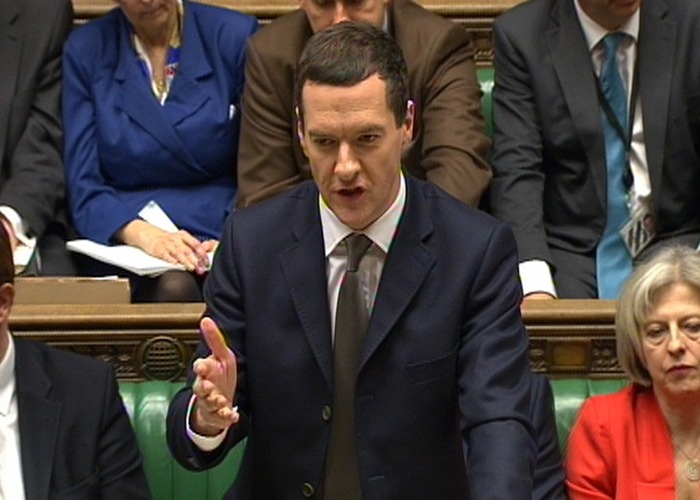Budget 2015: what the Chancellor didn’t say

Here are the changes that didn't made it into the speech.
The 2015 Budget was the longest delivered by George Osborne as Chancellor, but going through the full Budget document has revealed not everything made it into his speech.
National Insurance
In the speech, the Chancellor said: "In the next Parliament we will abolish Class 2 National Insurance contributions for the self-employed entirely". However, these changes are subject to a consultation period at the end of this year, while there is only a commitment to make changes in the next five years. If they are scrapped, that will mean a saving of £2.75 a week.
Employee benefits
From April 2016 employers will be able to collect tax on certain employee benefits via the payroll, rather than having to report them at the end of the year. According to John Harding, employment tax partner at PricewaterhouseCoopers, this cut in admin could save employers as much as £20 million a year.
Tobacco duty
When the Chancellor said that he had “no changes to make to the duties on tobacco… already announced” what he didn’t mention was that meant they would be going up by 2% above the Retail Prices Index (RPI) from 6pm on Wednesday (18th March) due to the current duty escalator already in place.
Vehicle Excise Duty
From 1st April, the rates for cars, vans and motorcycles will be going up by the RPI rate of inflation.
Peer-to-peer ISAs
In last year’s Budget, George Osborne said that he wanted to make it possible for peer-to-peer lenders to place their investments within an ISA. The Government has held a consultation on this subject, but we now know that we won’t hear the results of that consultation until the summer.
Royal Bank of Scotland
In the Budget speech, the Chancellor announced the sale of its shares in what remains of Northern Rock and Bradford & Bingley, as well as at least £9 billion of Lloyds Banking Group shares.
There was no mention of Royal Bank of Scotland though, of which the Government owns a whopping 80%.
The Budget document simply says: “The Government intends to take a decision on the timing of any exit programme from RBS early in the next Parliament.”
Clearing up mortgage fees
The Council of Mortgage Lenders and Which? have published an interim report on standardising and improving the transparency of the fees and charges levied by mortgage lenders. “Firm conclusions” will be published in July, and the majority of the industry is expected to have made the necessary changes by the end of the year.
Smart ATMs
The Government wants people to be able to deposit as well as withdraw money from “intelligent cash machines” and is working with LINK and its members to establish what changes need to be made.
Rural broadband
The Government says it wants to raise the Universal Service Obligation – the legal entitlement to a basic service – from dial-up speeds to 5Mbps broadband.
Sub-letting
The Budget document confirms that the Government’s model tenancy agreement will be amended by this summer to ensure tenants in private rented accommodation can request their landlord’s permission to sub-let, or otherwise share space, on a short-term basis. It also intends to legislate to prevent the use of clauses expressly ruling out sub-letting from tenancy agreements.
The Big Energy Saving Network
The Big Energy Saving Network helps vulnerable people to reduce their energy costs, and is made up of housing associations, Citizens Advice and community energy initiatives. In 2014/15 it received £1 million of funding, but this will jump to £1.3 million in 2015/16, with 100,000 vulnerable people benefitting.
Compare gas and electricity tariffs with lovemoney.com
School kitchens
A sum of £10 million will be provided to help the provision of universal infant free school meals in small schools, with a further £10 million going towards helping schools improve their kitchen facilities.
Nuisance calls
A package worth £3.5 million is being set aside to explore ways to protect vulnerable people from nuisance calls. This will include developing new call blocking technology, and a campaign to raise awareness on how to reduce and report nuisance calls.
MiData
The MiData initiative is designed to help people more accurately compare current accounts to work out which one will be best for their own circumstances. We now have a date for when it will be going live – 26th March via comparison website Gocompare.
Earn up to 5% interest from a current account
More on the Budget:
Comments
Be the first to comment
Do you want to comment on this article? You need to be signed in for this feature